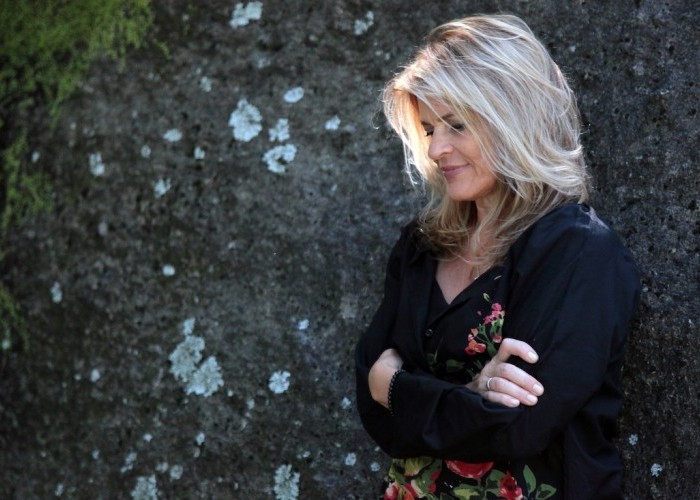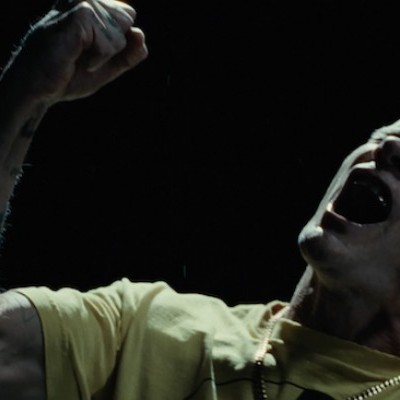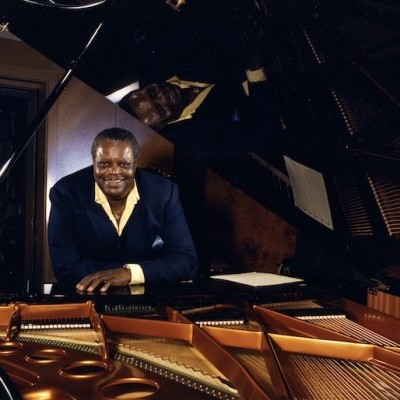Dec 9, 2025 12:28 PM
In Memoriam: Gordon Goodwin, 1954–2025
Gordon Goodwin, an award-winning saxophonist, pianist, bandleader, composer and arranger, died Dec. 8 in Los Angeles.…

Following a fire in her Rio de Janeiro home, improvising vocalist Claudia Villela has found a renewed interest in releasing music.
(Photo: Aloizio Jordão)Claudia Villela was all set to catch a December 2017 return flight to California from her native Brazil when a fire broke out in her Rio de Janeiro apartment. The singer and composer suffered several severe injuries that day, and the computer that held years’ worth of her unreleased recordings were destroyed.
The catastrophe prompted Villela to reassess her career path. The loss of so much creative output impelled her to think about how to get her extensive catalog of mostly improvised compositions out into the world, and “it made me more passionate about what I’m releasing now,” she said during a recent phone conversation from Santa Cruz, her home in the U.S. since the mid-’80s.
Her latest album, Encantada Live (Taina), is Villela’s seventh release since her now little-known 1992 debut of originals, Nosso Abacaxi. In the intervening years, as Villela’s reputation as a preternaturally gifted improviser rose, she performed and recorded diligently, but only occasionally released albums. Whether by default or by design, Encantada Live fills in some of the regrettably empty space in Villela’s discography: The collection derives from multiple live performances during the past 10 years, featuring Villela in concert variously with solo guitar or piano, a quartet or a septet. None of these divergent performances is about a specific group sound, however. What they hold in common is an unwavering commitment to the highest level of improvisation.
All discussions about Villela’s singing and songwriting necessarily start with a nod to the dizzying scope and depth of her improvisatory skill. In one tune (say, “Cuscus,” from the new record), she’ll run through several registers, shift vocal qualities, allude to familiar riffs and keep unswerving time. Oh, and improvise a full set of lyrics in Portuguese. It must be said, hardly anybody can do this.
The bebop singers come closest, perhaps. And though Villela studied at the prestigious Manhattan School of Music with scat master Sheila Jordan—a fitting guide for the naturally intuitive singer—bebop is only one of Villela’s sources. In addition, she culls references from Western classical music, lullabies, traditional Brazilian sambas, bossas, choros and the like.
“I don’t know where [all of the ideas] come from,” she admitted. “When I sing, I’m in a spell and that’s where the magic happens.”
Villela found a likeminded improvisational musician in pianist Kenny Werner, who recorded Villela’s fourth album, dreamtales, a completely unrehearsed, all-improvised 2004 duo recording.
“I think of what Claudia does as spontaneous composition—you feel like you’re hearing a composition that’s being revealed in the moment,” explained Werner when queried about the approach they used on “Minas,” a 14-minute modal duet on the new album. “She is the only singer I’ve met who not only can play free for a whole set, but can bring enough textures to make it feel like spontaneous composition.”
Today, Villela often travels back and forth to Rio, still busy rebuilding after the fire. The effort depletes her energy, even as she feels galvanized to produce more music.
“I will record again this year for sure,” she avowed, describing a studio album that would include Latin American poetry set to her music, as well as a live album with guitarist Romero Lubambo. But Villela’s renewed interest in record releases isn’t about pushing out product.
“My next album is going to be better, deeper and stronger,” she concluded. “I have this feeling now that we haven’t much time.” DB

Goodwin was one of the most acclaimed, successful and influential jazz musicians of his generation.
Dec 9, 2025 12:28 PM
Gordon Goodwin, an award-winning saxophonist, pianist, bandleader, composer and arranger, died Dec. 8 in Los Angeles.…

Belá Fleck during an interview with Fredrika Whitfield on CNN.
Jan 13, 2026 2:09 PM
The fallout from the renaming of the John F. Kennedy Center for the Performing Arts to include President Donald…

Flea has returned to his first instrument — the trumpet — and assembled a dream band of jazz musicians to record a new album.
Dec 2, 2025 2:01 AM
After a nearly five-decade career as one of his generation’s defining rock bassists, Flea has returned to his first…

Dec 11, 2025 11:00 AM
DownBeat presents a complete list of the 4-, 4½- and 5-star albums from 2025 in one convenient package. It’s a great…

“It’s a pleasure and an honor to interpret the music of Oscar Peterson in his native city,” said Jim Doxas in regard to celebrating the Canadian legend. “He traveled the world, but never forgot Montreal.”
Nov 18, 2025 12:16 PM
In the pantheon of jazz luminaries, few shine as brightly, or swing as hard, as Oscar Peterson. A century ago, a…